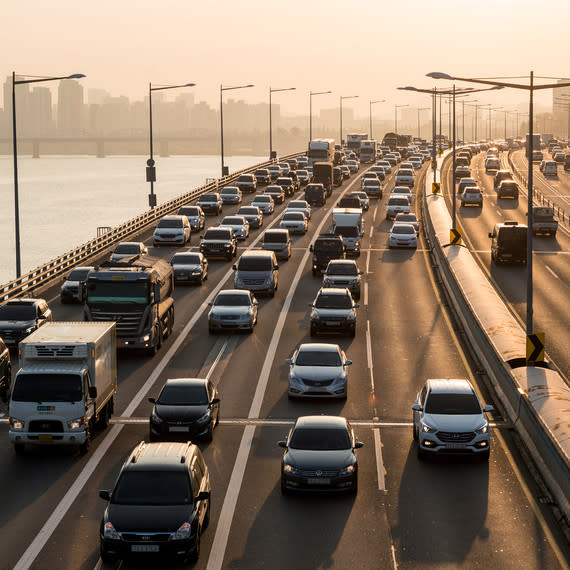This Is the Worst Time to Travel During Memorial Day Weekend, According to AAA

Memorial Day is the official start of summer, but everyone's itch to start traveling (and that three-day long weekend most people enjoy) is what causes roads, rails, and runways to be especially congested. And it might be worse than ever this year. According to AAA forecasts for 2019, an additional 1.5 million Americans plan to travel for Memorial Day compared to last year. That's a 4 percent increase from 2018, and the second-highest Memorial Day travel forecast since the AAA began their work in 2000. Experts also add that there's a chance that the total number of travelers could come in even higher.
The majority of Memorial Day travel will be done by car—about 88 percent in total, which is a record high compared to previous years. According to experts at the travel organization, the very worst congestion on major highways could occur in the late afternoon hours on Thursday, May 23, and Friday, May 24. Using data provided by analytics company INRIX, the AAA predicts that people will be leaving work earlier than normal to begin traveling, which will add even more strain on roadways at normal rush hour when others are leaving work.
"Drivers in the most congested metros should expect much worse conditions than normal," INRIX transportation analyst Trevor Reed said in the press release. "Travelers should anticipate delays to start on Wednesday and continue through Memorial Day. Our advice to drivers is to avoid the morning and evening commuting times or plan alternate routes."
RELATED: Here's Why You Should Never Ask for Ice on Airplanes
The data predicts that those in the New York metropolitan area will see their normal travel routines doubled if they travel between 4:45 p.m. and 6:45 p.m. on Thursday. Unfortunately, the other side of the holiday weekend won't be any better: Those traveling in or through Boston and Washington, D.C., on Memorial Day itself are expected to spend three times as much time on typical routes between 3:45 p.m. and 5:45 p.m. And if you live in Orlando, Las Vegas, or New York City, expect even further delays, since the AAA estimates that these will be the top destinations for travelers.
Choosing to take a train or ferry might be a better solution, as air travel is also expected to be impacted over the holiday weekend. More than 3.25 million people will head to the airports between Thursday and Monday, a nearly 5 percent increase over the last year. That's compared to a 3.8 percent increase in passengers traveling via bus, train, and ferries or cruise ships. If you don't choose to travel by car, you'll also be saving on elevated gas prices, which have increased by upwards of 30 cents on average over the last two months alone, the AAA reports.
The good news? Experts say that car rental companies and hotels are expected to offer lower rates than usual—prices have declined 7 percent over the last year for cars, and mid-range hotels are charging 3 percent less.
